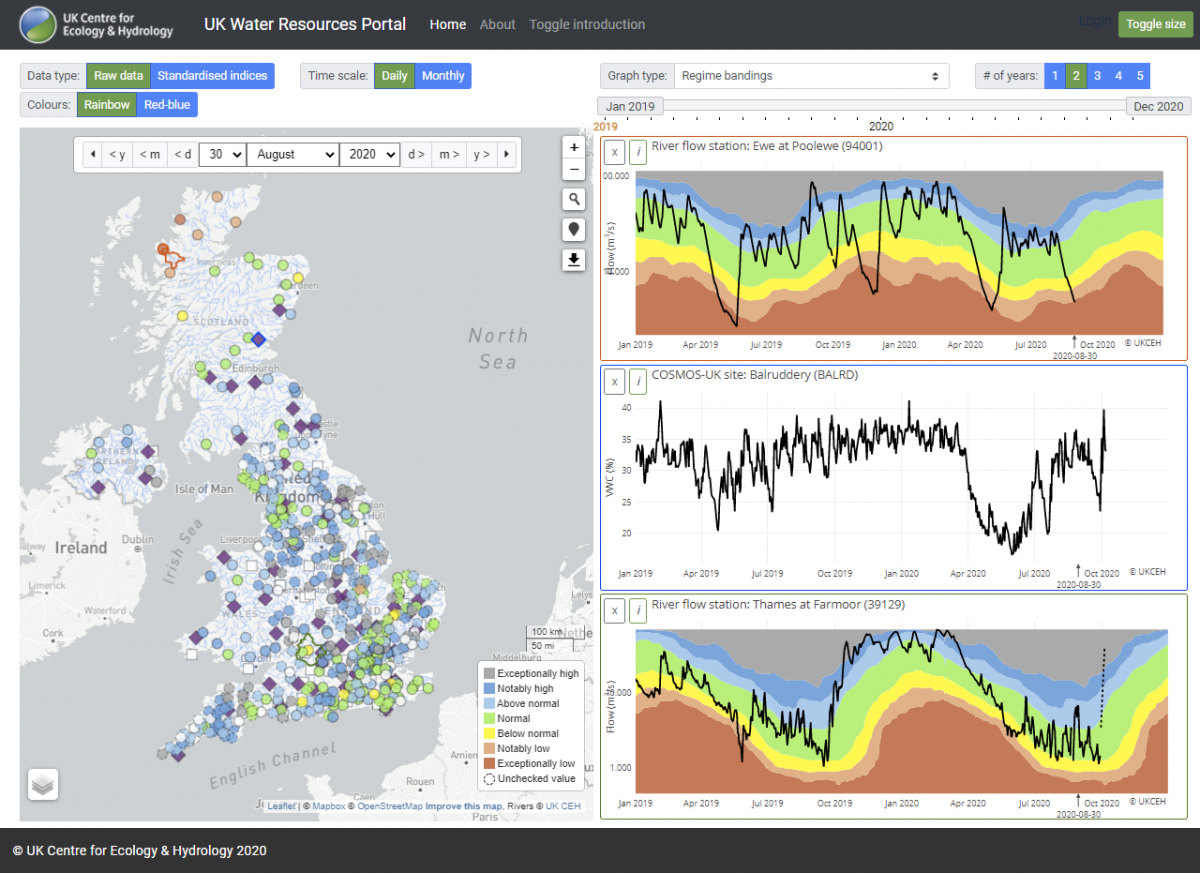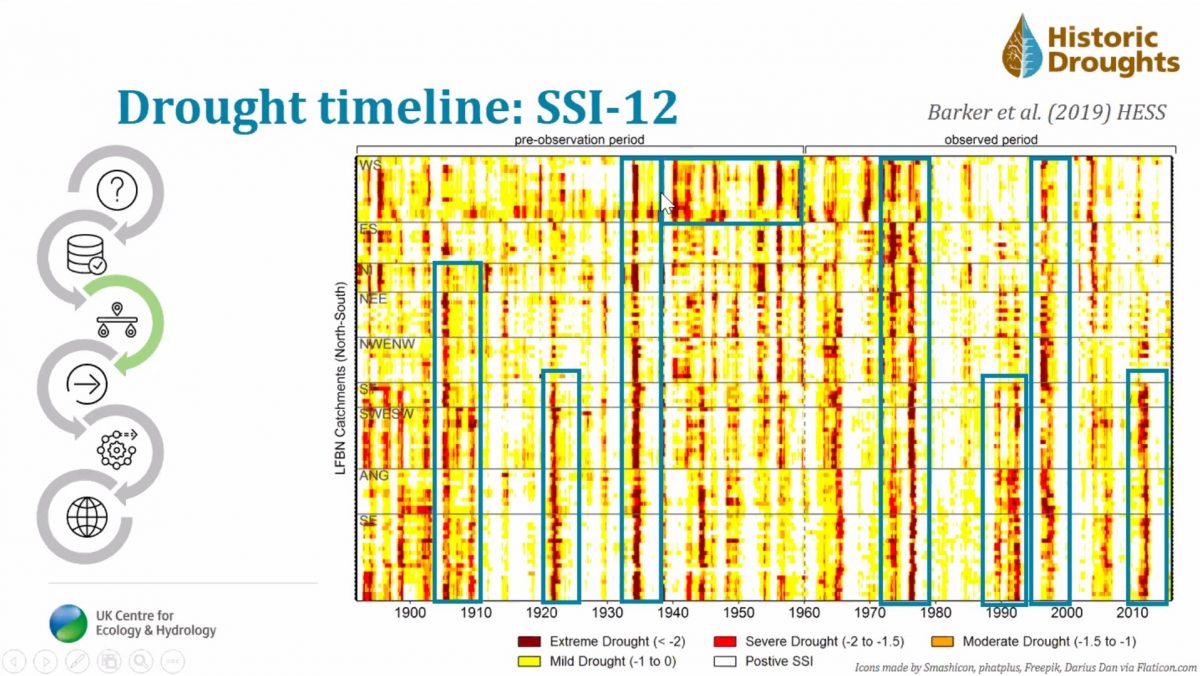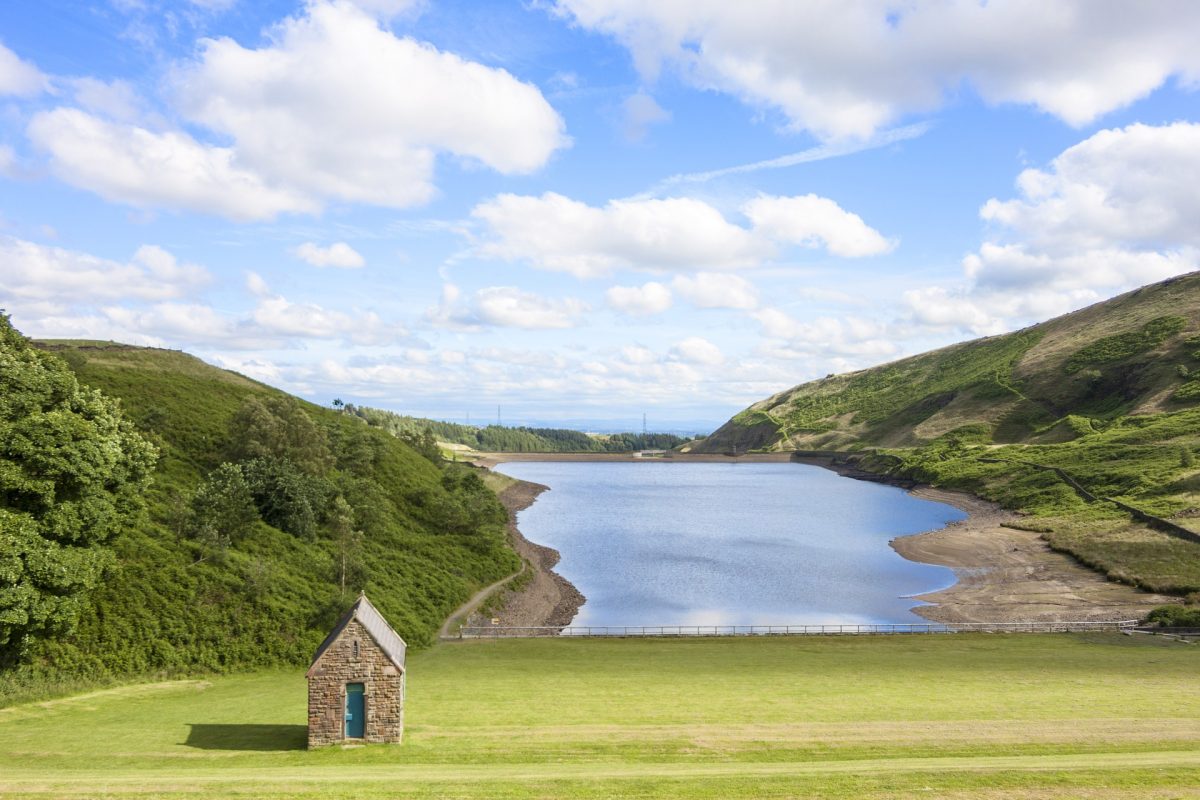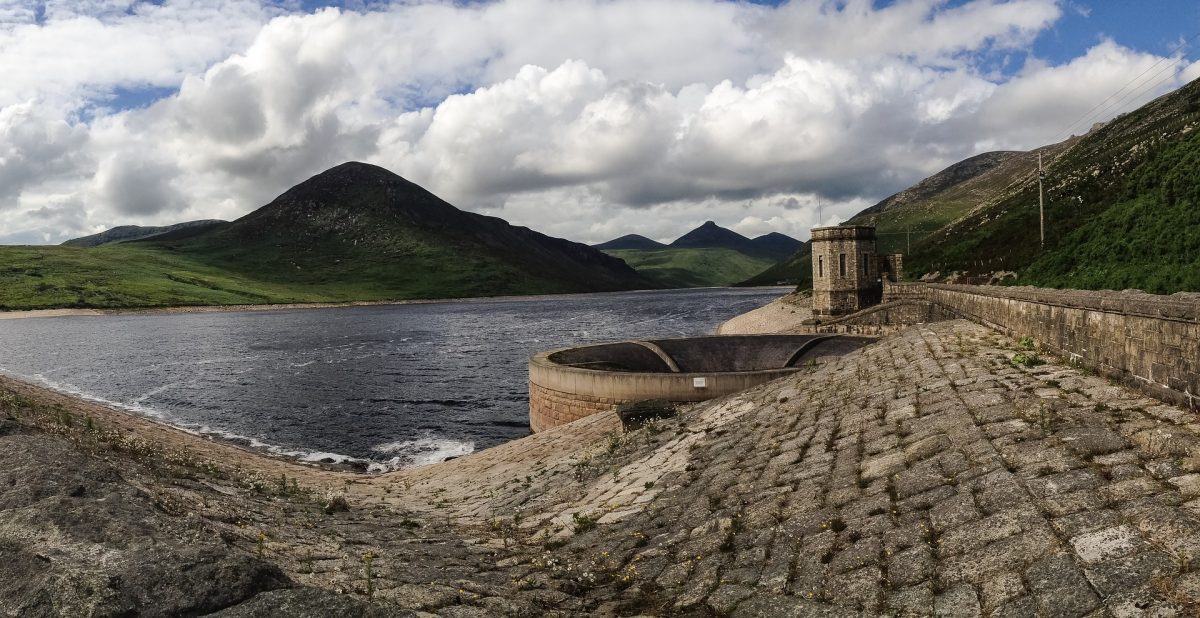A year on from the launch of the UK Water Resources Portal, it is being used as a valuable and reliable real-time water monitoring tool by environmental and water managers.
The web-based system tracks the latest hydrological situation across England, Wales and Scotland, allowing users to explore up-to-date data including rainfall, river flows, soil moisture and groundwater levels.
It makes use of very recently published real-time river flow data from the Environment Agency (EA) and puts it in the context of longer term water availability, using data from the National River Flow Archive based at the UK Centre for Ecology & Hydrology (UKCEH), including knowledge about drought indicators that have been developed through the About Drought programme.
It includes standardised indicators for rainfall (Standardised Precipitation Index), river flows (Standardised Streamflow Index) and groundwater (Standardised Groundwater Index), but allows users to switch to actual values, which can make them easier to understand. Indices can be compared between locations with very different rainfall and between times of year or be calculated over different time frames, depending on the user’s requirements.
Matt Fry, Environmental Informatics Manager at the (UKCEH), manages the data workstream of the About Drought knowledge exchange project. His focus has been on co-designing the tools to put the research programme’s data into the hands of users in an accessible and meaningful way. He says:
You do not need technical skills to use the UK Water Resources Portal. Anyone with an interest in current water resources or drought conditions can use it – from policymakers to members of the public, businesses to farmers and regulators to consultants. It really helps to raise awareness of the status of river flows and rainfall, particularly during drought episodes, and we believe it is an excellent communications tool for all sorts of end users and decision makers
Jamie Hannaford, Principal Investigator of About Drought and Principal Hydrologist at UKCEH, adds:
“The UK Water Resources Portal is a big advance in real-time data availability.”
The UK Water Resources Portal is just one of the many user-friendly data products from About Drought.
Explore the data platforms here.
Read more in the online About Drought Handbook.




